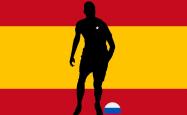TheThrilloftheGame:AComprehensiveOverviewoftheUEFAEuropeanChampionship
Introduction
The UEFA European Championship, commonly referred to as the Euros, is one of the most prestigious football tournaments in the world. Held every four years, it brings together the best national teams from across Europe to compete for the coveted title of continental champions. This article delves into the history, format, impact, and memorable moments of the Euros, providing a comprehensive overview of this thrilling sporting event.
Historical Background
The inception of the European Championship dates back to 1958 when the Union of European Football Associations (UEFA) organized the first edition. Initially, the tournament was a relatively small affair, with just four teams participating in the final stage. Over the years, the competition has expanded, and the 2016 edition featured 24 teams for the first time.
The tournament has witnessed numerous changes in its format, including the introduction of a qualifying round, the expansion of the final stage, and the adoption of a group stage followed by knockout rounds. These changes have contributed to the growth and popularity of the Euros, making it a global spectacle.
Tournament Format
The current format of the Euros involves a twoyear qualifying phase, followed by the final tournament. The qualifying phase sees national teams divided into groups, with the winners and runnersup from each group, along with a number of best thirdplaced teams, advancing to the final tournament.
In the final tournament, the 24 qualified teams are divided into six groups of four teams each. The top two teams from each group, along with the four best thirdplaced teams, progress to the knockout stage, which consists of the round of 16, quarterfinals, semifinals, and the final.
Impact on Football and Society

The Euros have had a profound impact on the world of football, showcasing the talent and passion of European players and teams. The tournament has also played a significant role in shaping the careers of many football legends, such as Michel Platini, Marco van Basten, and Cristiano Ronaldo.
Beyond football, the Euros have a significant social and economic impact. The tournament generates substantial revenue through ticket sales, broadcasting rights, and sponsorship deals. It also boosts tourism and local economies, as fans flock to the host countries to support their teams.
Memorable Moments
The Euros have produced countless memorable moments that have become etched in the annals of football history. From the iconic "Panenka" penalty by Antonin Panenka in 1976 to the "Golden Goal" by David Trezeguet in Euro 2000, these moments have captured the imagination of football fans worldwide.
Other notable moments include Greece's unexpected triumph in 2004, underdog Denmark's victory in 1992, and the thrilling final between France and Portugal in 2016, which saw Portugal emerge as champions for the first time.
Conclusion
The UEFA European Championship is a celebration of football, bringing together the best of European talent in a thrilling competition. With its rich history, exciting format, and unforgettable moments, the Euros continue to captivate audiences and inspire future generations of footballers. As the countdown begins for the next edition, fans across the globe eagerly await the drama, passion, and excitement that the Euros promise to deliver.








